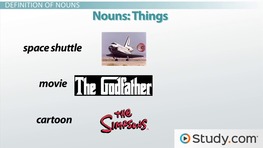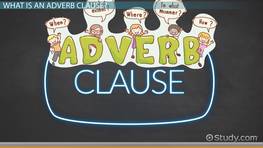- English Language Arts Grade 9 Skills Practice
- English Language Arts Grade 10 Skills Practice
- English Language Arts Grade 11 Skills Practice
- English Language Arts Grade 12 Skills Practice
Explore Grammar
Table of contents
Grammar Courses
Numerous grammar courses exist on Study.com's platform to help students and their parents understand basic English grammar concepts. These courses teach types of grammatical structures and general grammar concepts to help students understand the basics of English grammar and beyond.
Explore our full library of grammar courses:
3rd Grade English
6th Grade Language Arts
Comprehensive English: Overview & Practice
English Language Arts for Kids
English Grammar Rules
Explore our full library of grammar courses:
What is Grammar?
Grammar has sadly gotten a bad reputation among many students and professionals alike. Unfortunately, many believe that grammar consists of a list of archaic rules that follow no rhyme or reason and exist merely to make students miserable and writers confused - this is not the case.
The end goal of grammar instruction is not to be able to diagram a sentence or label the parts of speech adequately. Instead, the end goal of grammar is to help a writer properly convey their meaning to their audience. An understanding of grammatical concepts can help readers get their points across and create the most impactful statements that they are capable of crafting.
Understanding basic terminology, such as the names of the parts of speech, can help writers understand more complex grammatical concepts that can help or hinder their writing. After all, it is hard to know if a sentence is complete if someone does not know what a subject or a verb is.
Understanding terms like sentence fragments and run-on sentences can help writers understand when their sentences are actually obscuring their meaning. Run-on sentences are not harmful simply because an English teacher says they are. Instead, they are harmful because they make it hard for a reader to understand what a writer is saying.
So knowing all of that, what is grammar? Simply put, grammar is the list of rules and norms that help language work. All languages have grammar. English grammar can focus on terminology, usage, and rules. Once a writer masters these concepts, mistakes may still occur in their writing, but they will better understand why errors are erroneous, and they will have a powerful toolbox of techniques to fix them.





Grammar Lessons and Skills
These grammar lessons and skills exercises provide multiple different levels. These levels range from 9th-12th grade. Most topics are covered at each grade level but with varying difficulty levels. Under each general heading, such as punctuation or spelling, many different exercises ensure there is something for all learners.
Grammar, vocabulary, and spelling practice exercises cover:
- phrases
- clauses
- sentence structure
- capitalization
- spelling
- punctuation
- nouns
- pronouns
- verbs
- verbals
- grammar conventions
- adverbs
- adjectives
- dictionary and thesaurus use
- word choice
- word meaning
- prefixes
- suffixes
- roots
These grammar lessons include reading exercises that cover topics such as:
- analyzing informational texts and literary devices
- analyzing literature
- analyzing poetry.
Writing exercises help students with writing and revising.
In each grammar practice exercise, students are given a question and provided multiple choice answers. Students can choose to see the multiple choice answers, or if they wish even further to test their grammatical skills, they can try to answer the question without looking at the list of choices. Often, students must select the grammatically correct answer according to a particular concept.
For the reading exercises, students are given a sample text and must answer questions about the text, helping students with skills such as finding the main idea. It can also help them prepare for standardized and placement tests that often look at these skills.
The writing segments provide a sample text and then ask students questions about steps a writer might take while revising or developing that text. These grammar quiz answers are in multiple-choice format, but they intend to help students think through the writing process.
Students can browse the selection of exercises available. Some students may review skills at a lower level that they missed out on during prior instruction. Other students may prefer to work at their current level and grow their skills, while the third set of students may choose to push themselves with ever higher levels of lessons to see how thoroughly they understand the English language. With no grades attached, these lessons are a no-pressure way to explore a topic that can cause tension and stress for some students.
Test Prep
Prospective language arts teachers can feel confident and prepared to tackle important licensure exams after studying with Study.com's test prep guides and materials. These tests cover basic English grammar and provide a clear understanding of grammar usage and language rules. While there are various test preparation guides for different state's tests, future Florida teachers will want to explore the FTCE General Knowledge and FTCE Middle Grades English test prep materials.